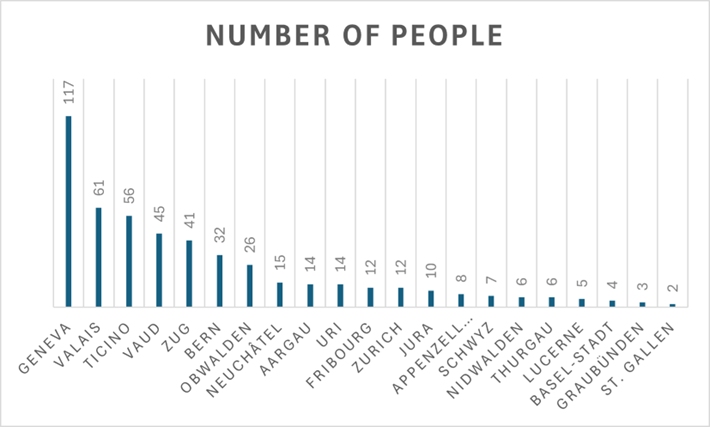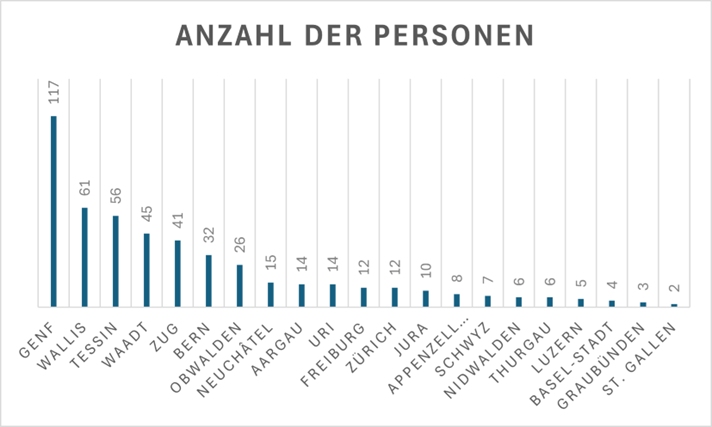India: Travel advice regarding the current India-Pakistan situation
The recent Indian military operations have resulted in the following impact on air travel in India:
Airports in Srinagar, Jammu, Leh, Jodhpur, Amritsar, Bhuj, Jamnagar and Dharamshala in India are currently out of service until further notice. Some international routes may be rerouted due to regional airspace restrictions. Several airlines have temporarily suspended flights to some parts of North India due to airspace restrictions and airport closures.
Travelers should expect delays or cancellations of departures, arrivals and connecting flights in India and should be prepared for increased screening at Indian airport checkpoints. Travelers to India should check their flight status before departure.
Indien: Reisehinweise bezüglich der aktuellen indisch-pakistanischen Situation
Die Flughäfen in Srinagar, Jammu, Leh, Jodhpur, Amritsar, Bhuj, Jamnagar und Dharamshala in Indien sind derzeit bis auf weiteres ausser Betrieb.
Einige internationale Routen können aufgrund regionaler Luftraumbeschränkungen umgeleitet werden.
Mehrere Fluggesellschaften haben aufgrund von Luftraumbeschränkungen und Flughafensperrungen vorübergehend Flüge in einige Teile Nordindiens ausgesetzt.
Ireland: New Employment Permits Online system launched
The Irish Department of Enterprise, Trade and Employ- ment (DETE) has launched its new online work permit system (EPOS).
The most important points are:
EPOS was officially launched on April 28 and provides a portal area with separate and individual accounts for employers, employees and intermediaries / external service providers, making it easier to get up-to-date information on the status of applications.
According to the DETE, the new system is intended to make the application process simpler, more secure and more intuitive, thereby also reducing inaccuracies in the submission of applications, which should lead to more efficient processing of applications.
EPOS requires all users (employers, employees and intermediaries / external service providers) to set up a portal account in order to access the system and submit future applications for work permits. This involves confirming an email address and password and verifying them via a secure multi-factor authentication process (with mobile phone confirmation).
For employers, registration also requires the provision of some important additional documents, such as information on income and entry in the commercial register. No new applications can be made until the employer has set up their portal.
Irland: Neues System Employment Permits Online" gestartet
Das irische Ministerium für Unternehmen, Handel und Beschäftigung (DETE) hat sein neues Online-System für Arbeitsbewilligungen (EPOS) eingeführt.
Die wichtigsten Punkte hierzu sind:
EPOS wurde offiziell am 28. April eingeführt und bietet einen Portalbereich mit separaten und individuellen Konten für Arbeitgeber, Arbeitnehmer und Vermittler / externe Dienstleister, was es einfacher macht, aktuelle Informationen über den Status der Anträge zu erhalten.
Durch das neue System soll gemäss DETE das Antragsverfahren einfacher, sicherer und intuitiver macht und hierdurch auch Ungenauigkeiten bei der Einreichung von Anträgen verringert werden, was zu einer effizienteren Bearbeitung der Anträge führen soll.
EPOS verlangt von allen Nutzern (Arbeitgeber, Arbeitnehmer und Vermittler / externe Dienstleister) die Einrichtung eines Portalkontos, um auf das System zugreifen und künftige Anträge für Arbeitsbe- willigungen stellen zu können. Dies beinhaltet die Bestätigung einer E-Mail-Adresse und eines Passworts sowie deren Verifizierung über ein sicheres Mehrfaktoren-Authentifizierungsverfahren (mit Handy-Bestätigung).
Für Arbeitgeber erfordert die Registrierung auch die Bereitstellung einiger wichtiger zusätzlicher Doku- mente, wie Angaben zum Einkommen und zum Handelsregistereintrag. Solange der Arbeitgeber sein Portal nicht eingerichtet hat, können keine neuen Anträge gestellt werden.
Thailand: Notification of residence is now required for certain visa applications
Effective immediately, the Thai Board of Investment (BOI) requires applicants to submit a TM30 residency notification (either online or in paper form) to support both the initial application for a long-term visa and the application to extend a visa via the BOI Single Window System. Immigration authorities will reconcile their database to confirm that a foreign national's residence has been properly reported within 24 hours of arrival.
The responsibility for submitting the TM30 lies with the owner, landlord or occupier of the hotel, residence or apartment where the foreign national is staying. However, foreign nationals must ensure that the declaration has been submitted and should obtain or request a TM30 receipt as proof. This receipt is a required document for submitting visa applications through the BOI's Single Window System.
Thailand: Für bestimmte Visaanträge ist neu die Meldung des Wohnsitzes erforderlich
Ab sofort verlangt das thailändische Board of Investment (BOI), dass Antragsteller eine TM30- Wohnsitzmeldung (entweder online oder in Papier- form) einreichen, um sowohl den Erstantrag auf ein Langzeitvisum als auch den Antrag auf Verlängerung eines Visums über das BOI Single Window System. Die Einwanderungsbehörden gleichen ihre Datenbank ab, um zu bestätigen, dass der Wohnsitz eines ausländ- ischen Staatsangehörigen innerhalb von 24 Stunden nach der Ankunft ordnungsgemäss gemeldet wurde.
Die Verantwortung für die Einreichung des TM30 liegt beim Eigentümer, Vermieter oder Besitzer des Hotels, der Residenz oder der Wohnung, in der sich der ausländische Staatsangehörige aufhält. Ausländische Staatsangehörige müssen sich jedoch vergewissern, dass die Meldung eingereicht wurde und sollten eine TM30-Quittung als Nachweis erhalten beziehungs- weise im Falle eines Nichterhalts einfordern. Diese Quittung ist ein erforderliches Dokument für die Einreichung von Visumanträgen über das Single Window System des BOI.
Golden Visas in Switzerland – How the Wealthy Gain Residency Rights
BRIZIDA ALANI, CONVINUS
In Switzerland, a special provision in the Foreign Nationals and Integration Act (AIG) allows wealthy nationals from non-EU/EFTA countries to obtain a residence permit if they can demonstrate a "significant public interest." This practice, often referred to as a "golden visa," is facing increasing criticism. This is because "significant public interest" is commonly interpreted as the payment of a certain annual tax amount.
According to media reports, the number of these visas has risen from 354 in 2021 to nearly 500 – an increase of over 30 percent. The following overview shows the exact number of residence permits granted in 2024 by canton:

A particularly controversial point is that the most frequent applicants come from Russia and China.
A Green Party member of the National Council criticizes this practice, claiming it poses a reputational risk for Switzerland and calls for the abolition of the regulation. Other politicians also question whether additional tax revenues alone justify being labeled a "significant public interest."
In contrast, a member of the Swiss People's Party (SVP) defends the regulation, emphasizing that Switzerland needs immigration, especially when it benefits society and the economy.
taxation agreement between Canada and Switzerland, there can (as a rule) be no double taxation.
The debate over "golden visas" highlights the tension between economic interests and the principle of equal treatment in immigration law. It remains to be seen whether political initiatives will lead to changes in the current practice.
So how can non-EU nationals obtain a residence permit in Switzerland?
While there is officially no "Golden Visa" program, Switzerland still offers two well-established paths for wealthy non-EU nationals: lump-sum taxation (as explained above) and entrepreneurial investment.
1. Residence Permit through Lump-Sum Taxation
Wealthy individuals who do not engage in gainful employment in Switzerland can apply for a residence permit through a lump-sum tax agreement with a canton. This tax is based on living expenses and ranges from CHF 250,000 to CHF 1,000,000 annually, depending on the canton.
One of the most expensive is the canton of Zurich, with a minimum annual tax of CHF 1 million. Requirements include a clean criminal record, a residence in Switzerland, and sufficient financial means.
2. Residence Permit through Investment
Those who wish to engage in business activities may obtain a permit by founding or investing in a Swiss company. The minimum investment amount is around CHF 1 million. A key condition is that the company must create or maintain jobs for Swiss citizens. This option is particularly suitable for committed entrepreneurs with viable business ideas.
Good to know:
Both options can lead to naturalization after at least ten years of lawful residence, provided certain conditions are met. Since cantonal regulations vary significantly, expert advice from tax and immigration specialists is essential.
Conclusion:
Switzerland offers attractive options for wealthy investors seeking residency – not through a classic "Golden Visa" program, but via compelling alternatives. Anyone looking to settle in Switzerland long-term should carefully explore these pathways.
Goldene Visa in der Schweiz – Wie Reiche Zugang zum Aufenthaltsrecht erhalten
BRIZIDA ALANI, CONVINUS
In der Schweiz ermöglicht eine Sonderregelung im Ausländer- und Integrationsgesetz (AIG) vermögenden Drittstaatsangehörigen den Erwerb einer Aufenthaltsbewilligung, wenn «wichtiges, öffentliches Interesse nachgewiesen werden kann. Diese Praxis, oft als goldenes Visum" bezeichnet, gerät zunehmend in die Kritik. Denn nämlich wird unter wichtigem öffentlichem Interesse die Entrichtung eines bestimmten Steuerbetrags pro Jahr interpretiert.
Laut Medienberichten hat sich die Anzahl dieser Visa seit 2021 von 354 auf knapp 500 erhöht – ein Anstieg von über 30 Prozent. Anbei zeigt eine Übersicht die konkrete Anzahl der erhaltenden Aufenthaltsbewilligungen im Jahr 2024 pro Kanton:

Besonders kritisch ist die Tatsache, dass die häufigsten Antragsteller aus Russland und China stammen.
Ein Grünen-Nationalrat kritisiert, dass diese Praxis ein Reputationsrisiko für die Schweiz darstellt und fordert eine Abschaffung dieser Regelung. Auch andere Politiker stellen infrage, ob zusätzliche Steuereinnahmen allein ein wichtiges öffentliches Interesse" rechtfertigen.
Im Gegensatz dazu verteidigt eine SVP-Nationalrätin die Regelung. Sie betont, dass die Schweiz Zuwanderung brauche, insbesondere wenn sie der Gesellschaft und Wirtschaft nütze.
Die Diskussion über die goldenen Visa" zeigt die Spannungen zwischen wirtschaftlichen Interessen und dem Prinzip der Gleichbehandlung im Ausländerrecht. Es bleibt abzuwarten, ob politische Initiativen zu einer Änderung der bestehenden Praxis führen werden.
Doch wie erhalten Nicht-EU-Bürger eine Aufenthaltsbewilligung in der Schweiz? Während es offiziell kein sogenanntes Golden Visa"-Programm gibt, bietet die Schweiz dennoch zwei bewährte Wege für wohlhabende Drittstaatsangehörige: die Pauschalbesteuerung (wie oben erklärt) und unternehmerische Investitionen.
1. Aufenthaltsbewilligung durch Pauschalbesteuerung
Vermögende Personen ohne Erwerbstätigkeit in der Schweiz können über eine kantonal vereinbarte Pauschalsteuer eine Aufenthaltsbewilligung beantragen. Diese Steuer basiert auf den Lebenshaltungskosten und beträgt je nach Kanton jährlich mindestens CHF 250'000 bis CHF 1'000'000. Mit am teuersten ist Kanton Zürich mit einer Mindeststeuer von 1 Million pro Jahr. Voraussetzungen sind unter anderem eine saubere Strafregisterauskunft, ein Wohnsitz in der Schweiz sowie ausreichende finanzielle Mittel.
2. Aufenthaltsbewilligung durch Investition
Wer unternehmerisch aktiv werden möchte, kann eine Bewilligung durch die Gründung oder Beteiligung an einem Schweizer Unternehmen erhalten. Der Mindestinvestitionsbetrag liegt bei rund CHF 1 Million. Bedingung ist, dass das Unternehmen Arbeitsplätze für Schweizer Bürger schafft oder erhält. Diese Option eignet sich besonders für engagierte Geschäftsleute mit tragfähigen Ideen.
Gut zu wissen:
Beide Optionen führen nach mindestens zehn Jahren rechtmässigem Aufenthalt unter bestimmten Voraussetzungen zur Einbürgerung. Da kantonale Regelungen stark variieren, ist eine fundierte Beratung durch Steuer- und Migrationsspezialisten essenziell.
Fazit:
Die Schweiz bietet wohlhabenden Investoren interessante Möglichkeiten zur Niederlassung – ohne klassisches Golden Visa"-Programm, aber mit attraktiven Alternativen. Wer sich langfristig in der Schweiz niederlassen möchte, sollte diese Optionen genau prüfen.
The content of this article is intended to provide a general guide to the subject matter. Specialist advice should be sought about your specific circumstances.
[View Source]
